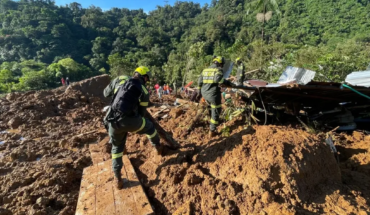
The fissures left by the pandemic, in conjunction with the need for structural reforms, force us to look up. Chile is at a stage characterized by the pressing need to regain trust and generate important social and economic changes that define the country for decades to come. Tacking the crisis of credibility in institutions requires more dialogue and agreements. Only in this way will the political system be able to restore its legitimacy and advance sustainable, ambitious and realistic reforms, built with the different actors. All this represents a generous and inclusive, sustainable and responsible future look.
While our country is ad portas of an expected constituent process that will help to relegate politics and its institutions, Chile’s requirements of the 21st century are also about advancing bold economic and social reforms. That is why we propose to create a permanent Economic and Social Council (CES), emulating the experience of nations that have established such dialogue forums, including Ireland, New Zealand, Australia, the Netherlands or Hungary. We postulate that their conformation be quadrita: state, workers, entrepreneurs (large and small), as well as civil society institutions that have played a gravitating role in the pandemic and who are called to continue playing a leading public role tomorrow.
The objective of this institution, which, in turn, will have the necessary voice of regions, is to be a forum for dialogue between actors that will allow proposals to be put forward to guide the Executive’s action in the construction of a roadmap for economic and social development, with a sense of urgency, but also with a medium and long-term view. While THE SSE will function as a permanent forum, we propose that every three years it submits a report with consensus proposals on which governments must make progress on labour, economic and social issues.
Creating this Council is more necessary than ever. To illustrate this, let us simply think about the urgent challenges we face in the labour market. To create jobs, combat informality, take charge of the technological change that the pandemic accelerated and that poses enormous opportunities, but also costs and risks for workers who could stay on the road. How to meet this challenge?
CES would play a key role in promoting equitable access to the necessary skills in the new world of work. It is within ceS that consensus formulas on female labour participation and narrowing gaps, hours, productivity and remuneration could be addressed, including a minimum wage that is now discussed exclusively between the CUT and the government on duty. It is also the instance to advance in flexisecurity: to generate the necessary adaptability that the 21st century demands and that our Labour Code requires, but guaranteeing greater safety floors for workers. And if it is the future, how is our educational system linked today to the formation of skills that are demanded in the present century? How do you discuss our higher education, college and technique with job challenges?
These are urgent issues to address, but which could only be healthyly discussed in an environment of greater legitimacy. The CES points precisely to this, through ongoing dialogue between workers, employers, civil society and the State. Clearly, present and future problems need greater perspective and diversity of actors participating in the debate in an institutional and long-term way. A CES would result in an instance certainly suitable for such purposes and to leverage this look of robust future development. This was Ireland’s successful path to promoting its virtuous development from the 1990s on, after facing a crisis and years of stagnation. More recently, reference countries such as Australia or New Zealand have established such dialogue forums to advance the job challenges of the 21st century.
The SSE that we will carry out would facilitate the cooperation of the main actors involved in the social and economic sphere, transparent the positions, allow the interests of different groups to be channeled and facilitate the development of stable and lasting growth strategies over time. In turn, policies that come from this Council – or are supported by it – will have much greater legitimacy than those that come from a single sector or group, which mayaccelerate its implementation.
A future with better democratic coexistence is as possible as it is necessary. Social reforms and economic development are not contrasted, but are virtuously complemented if they are built on the basis of an open society with a view to the future. The path to robust economic and social development is possible. Not to climb the rankings, but to improve the well-being of all. But that roadmap to development is only feasible if we build it together.
The content poured into this opinion column is the sole responsibility of its author, and does not necessarily reflect the editorial line or position of El Mostrador.





